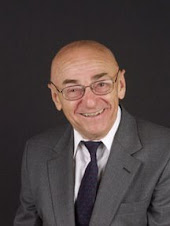Today it'll be Intro to Philosophy's turn for howls of derisive laughter. Or not. But in case you miss any of the Bruces' scintillating dialogue, here are a few of the less objectionable words:
And here's the argument clinic.
Second Bruce I'd like to welcome the pommy bastard to God's own earth, and I'd like to remind him that we don't like stuck-up sticky-beaks here. All Hear, hear! Well spoken, Bruce! Fourth Bruce Now, Bruce teaches classical philosophy, Bruce teaches Haegelian philosophy, and Bruce here teaches logical positivism, and is also in charge of the sheepdip. Third Bruce What's does new Bruce teach? Fourth Bruce New Bruce will be teaching political science - Machiavelli, Bentham, Locke, Hobbes, Sutcliffe, Bradman, Lindwall, Miller, Hassett, and Benet. Second Bruce Those are cricketers, Bruce! Fourth Bruce Oh, spit! Third Bruce Howls of derisive laughter, Bruce! Fourth Bruce In addition, as he's going to be teaching politics, I've told him he's welcome to teach any of the great socialist thinkers, provided he makes it clear that they werewrong. They all stand up. All Australia, Australia, Australia, Australia, we love you. Amen! They sit down. Fourth Bruce Any questions? Second Bruce New Bruce - are you a pooftah? Fourth Bruce Are you a pooftah? Michael No! Fourth Bruce No right, well gentlemen, I'll just remind you of the faculty rules: Rule one - no pooftahs. Rule two, no member of the faculty is to maltreat the Abbos in any way whatsoever - if there's anybody watching. Rule three - no pooftahs. Rule four - I don't want to catch anyone not drinking in their room after lights out. Rule five - no pooftahs. Rule six - there is no rule six! Rule seven - no pooftahs. That concludes the reading of the rules, Bruce. First Bruce This here's the wattle - the emblem of our land. You can stick it in a bottle or you can hold it in your hand. All Amen! Fourth Bruce Gentlemen, at six o'clock I want every man-Bruce of you in the Sydney Harbour Bridge room to take a glass of sherry with the flying philosopher, Bruce, and I call upon you, padre, to close the meeting with a prayer. First Bruce Oh Lord, we beseech thee etc. etc. etc., Amen. All Amen!
I was looking forward to projecting all this onto the impressive new 25-foot screen in our formerly low-tech classroom, but-- and isn't this funny?!-- the installers didn't hang it correctly. It fell over the weekend and crushed our lectern. Ha. Ha.Ha.
I'd complain... but if you complain it does no good, you might as well not bother. (etc.)
And several butchers' aprons.








 Charles Darwin (
Charles Darwin (











